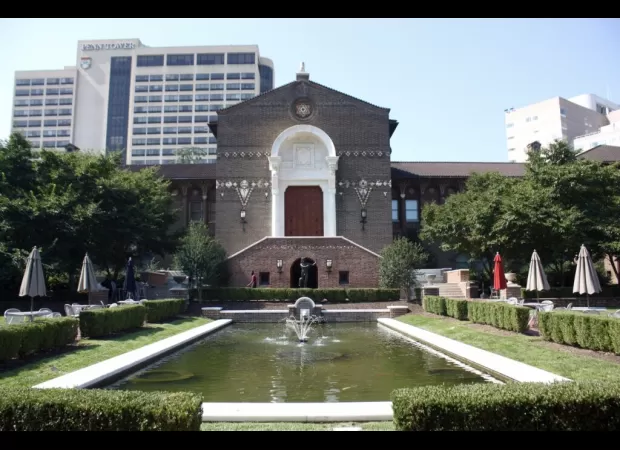Penn Museum releases remains of 19 African Americans after holding them in storage for 200 years.
The Penn Museum in Philadelphia, run by the University of Pennsylvania, faced backlash for choosing to bury the remains of 19 Black individuals at a historically Black cemetery, Eden Cemetery.

The University of Pennsylvania and its Penn Museum, located in Philadelphia, recently made the decision to bury the remains of 19 Black Philadelphians at Eden Cemetery, a historically Black cemetery. However, this decision has sparked some controversy and friction within the community. Many believe that the museum did not involve community members enough in the decision-making process regarding the fate of these bones. One community activist, Abdul-Aliy A. Muhammad, expressed frustration with the museum and stated that it was not true repatriation if the museum was the one making the decision. He also pointed out the irony that the same institution that had held and controlled these remains for years was now trying to give them a proper burial ceremony.
The issue of repatriating remains of historically oppressed peoples currently held by museums has been a topic of significant debate and discussion. This issue has particularly affected two groups within the museum world: Indigenous peoples of North America and Black Americans. While Indigenous peoples theoretically have more protection on paper, in practice, they have faced delays as museums have been slow to take action. Similarly, Black Americans have also been impacted by the decisions of museums, leading to conflicts between community members and museum administrations. This has been highlighted in a report by ABC6.
However, some, like former community advisory group member Renee McBride, are relieved that the museum is at least attempting to make amends. McBride stated that in her upbringing, when someone made a mistake, they took responsibility and fixed it. She also expressed relief that the museum, the ones who caused the issue in the first place, are now finding a solution.
The 19 Black Philadelphians whose remains were reinterred at the cemetery were part of the museum's Morton Cranial Collection, named after Dr. Samuel George Morton. Morton, a doctor and professor, collected 900 skulls in the 1830s, and the university continued to add to the collection after his death. His intention for this collection was to prove that white people were superior to all other humans, which was used to justify slavery in the Antebellum South. His racist pseudoscience still has an impact today, as explained by anthropological archeologist and professor Lyra Montiero of Rutgers. She stated that Morton's ideas became part of how medical students were trained and that this has contributed to medical racism.
Montiero also argues that the university should not be the ones to handle the repatriation process, as they never did any research themselves on the individuals whose remains they held. Instead, they relied on Morton's word. She believes that those who are not willing to do the research should not be the ones handling this sensitive task.
Christopher Woods, the director of the Penn Museum, hopes that going forward, the unidentified individuals buried at the cemetery will be identified and retrieved. However, for now, the bones need to be laid to rest. He also believes that the majority of the community is satisfied with the museum's actions and that the complaints from Muhammad and others represent a small, but vocal minority. Woods stated that repatriation should be a part of what the museum does and that they encourage further research to be done. He also emphasized the importance of not letting these individuals sit in the museum storeroom for another 200 years.
In a statement released to the Associated Press, the museum explained their reasoning for placing the bones in the cemetery. They stated that they wanted to balance prioritizing the human dignity of the individuals with conservation due diligence and logistical requirements. They also mentioned that the burial of these 19 Black Philadelphians was scheduled ahead of the interfaith ceremony and blessing.
In related news, over 100 forgotten gravesites were recently discovered at a former Black cemetery at an Air Force Base, bringing attention to the importance of properly handling and honoring the remains of those who have been historically oppressed. This is an ongoing issue that must be addressed in order to give these individuals the respect and dignity they deserve.
1 Views






